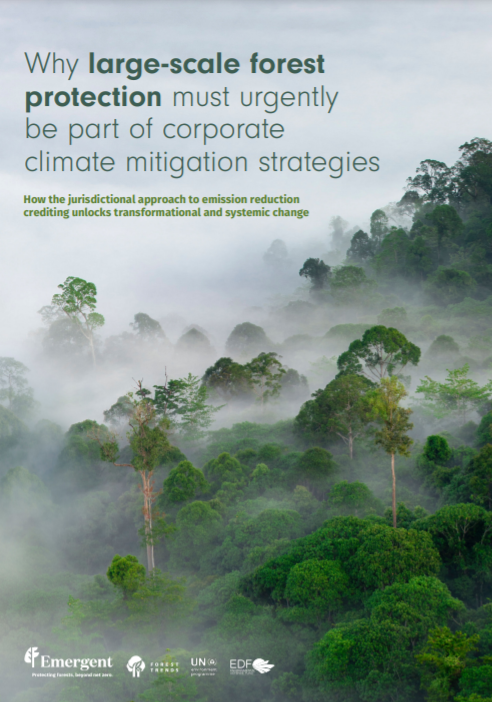Why Large-Scale Forest Protection Must Urgently be Part of Corporate Climate Mitigation Strategies
Ending tropical deforestation is a business and economic imperative. As companies chart their paths to meet science-aligned decarbonization and net-zero targets, many corporations are looking for additional opportunities to use emissions reduction credits to compensate for residual emissions. One priority source of low-cost, high-integrity emissions reduction credits is large-scale forest protection efforts at the level of entire countries or sub-national jurisdictions – known as the jurisdictional approach. Such an approach creates an enabling environment for local and private efforts on the ground. Carbon accounting is performed across the entire jurisdiction and leverages the power of the public sector to regulate and enforce forest and land use policies.
Jurisdictional-scale action to protect tropical forests has been around for at least two decades, but to date there has been a struggle to mobilize the levels of funding required to stimulate ambitious government policies or the required in-country investment. Companies can and should play an instrumental role in ramping up demand for emissions reduction credits from forest protection,
alongside increased support from governments, to help end deforestation around the world. Companies should consider purchasing high-integrity emissions reduction credits from jurisdictional-scale forest protection programs on their pathways to net zero.
